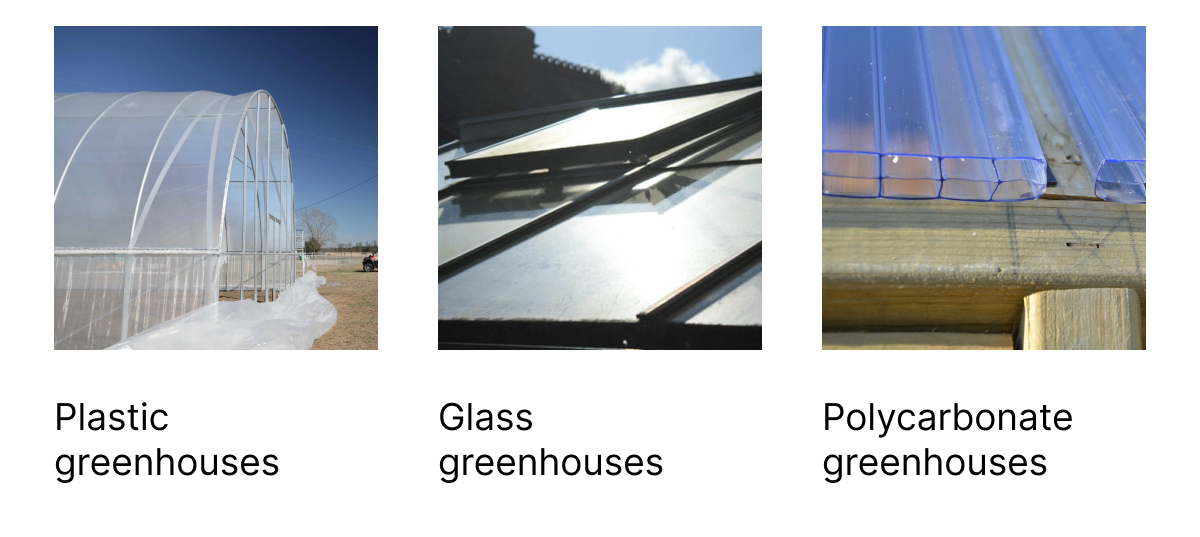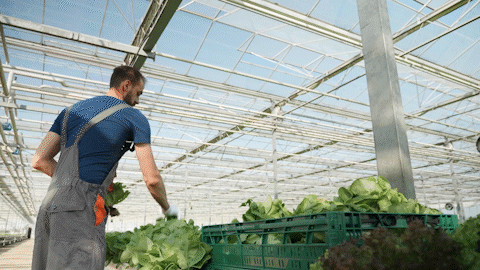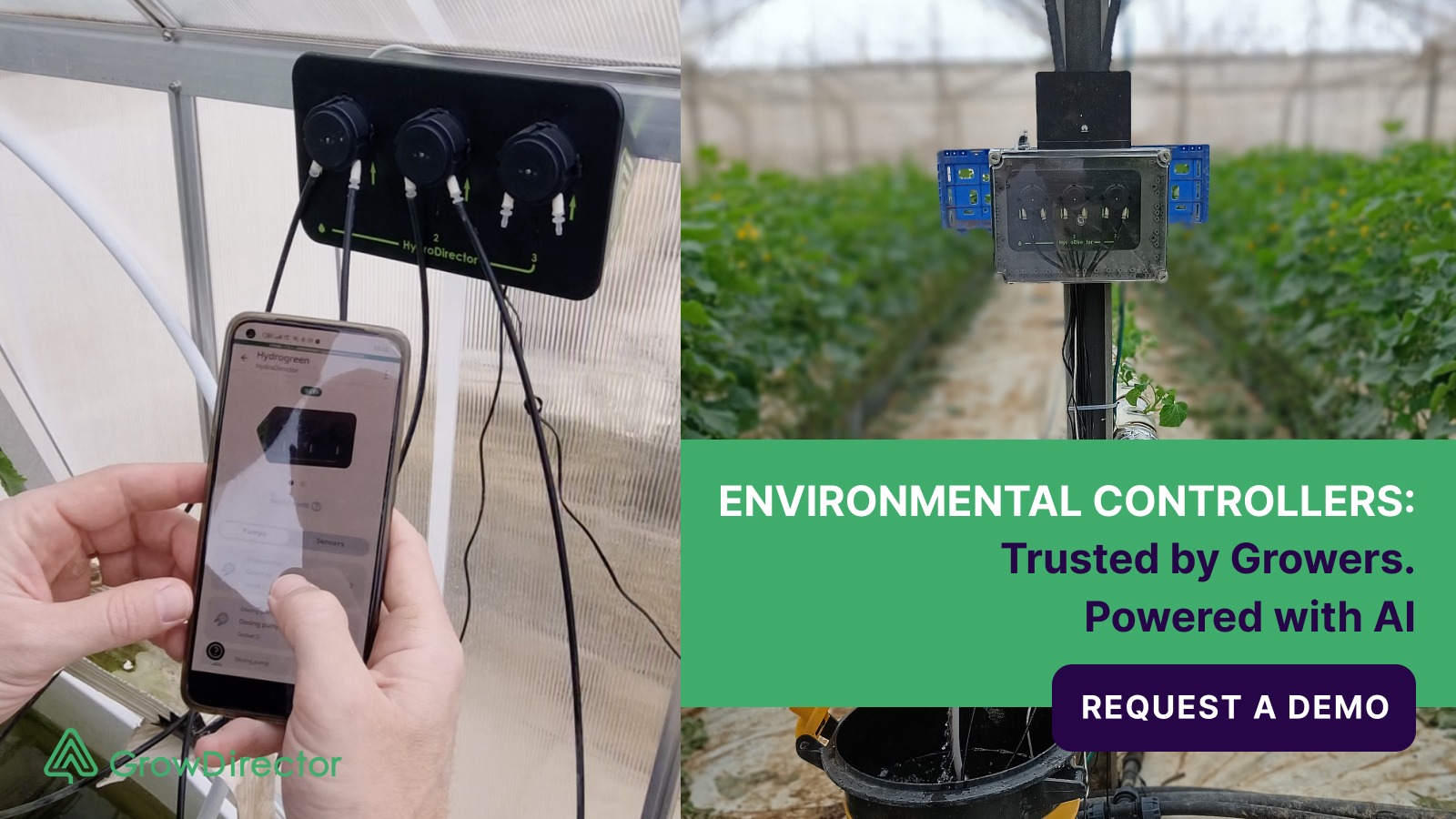
10 Things You Need to Know About Greenhouse Farming Technology
Greenhouse farming technology is the use of structures and equipment to create a controlled environment for growing crops. This technology can be used to extend the growing season, protect crops from adverse weather conditions, and improve crop yields.
Discover 10 things you should to know about greenhouse farming technology:
- Greenhouses extend the growing season. In cold climates, greenhouses can be used to start growing crops earlier in the spring and continue growing crops later into the fall.

- Greenhouses protect crops from adverse weather conditions. Greenhouses protect crops from wind, rain, hail, snow, and extreme temperatures.
- It improve crop yields. Greenhouses control the environmental conditions, such as temperature, humidity, and light levels, to create an ideal environment for plant growth.
- Grow crops that would not otherwise be possible. Greenhouses can be used to grow tropical fruits in cold climates.
- Greenhouses produce high-quality crops. The controlled environment of a greenhouse helps to produce crops that are free of pests and diseases.
- It reduce the use of pesticides and herbicides. The controlled environment of a greenhouse makes it easier to control pests and diseases without the use of chemicals.
- Greenhouses conserve water. The controlled environment of a greenhouse helps to conserve water by reducing evaporation and runoff.
- Greenhouses create jobs. The construction and operation of greenhouses require skilled labor.
- Greenhouse farming improve food security. Greenhouses can be used to grow crops in areas that are prone to drought, flooding, or other natural disasters.
- Greenhouses reduce our reliance on imported food. Greenhouses can be used to grow crops locally, which reduces our reliance on imported food.
Greenhouse farming technology is a rapidly growing field with the potential to revolutionize agriculture. By understanding the basics of technology, farmers can use it to improve their crop yields, reduce costs, and protect the environment.

The Different Types of Greenhouse Farming
There are a variety of farming technologies available, each with its own advantages and disadvantages. Professional growers should carefully consider their needs and goals before choosing a technology.
Some of the different types include:
- Polycarbonate greenhouses: Polycarbonate greenhouses are a popular choice for professional growers because they are durable, energy-efficient, and relatively easy to maintain.
- Glass greenhouses: Glass greenhouses offer the best light transmission, but they are also the most expensive to build and maintain.
- Plastic greenhouses: Plastic greenhouses are the least expensive option, but they are also the least durable and energy-efficient.

How to Choose the Right Farming Technology for Your Needs
- Consider your needs and goals. What are you hoping to achieve with greenhouse farming? Are you looking to extend the growing season, protect your crops from adverse weather conditions, or improve crop yields? Once you know your goals, you can start to narrow down your choices of greenhouse farming technology.
- Research different types of greenhouses. There are a variety of greenhouses available, each with its own advantages and disadvantages. Polycarbonate greenhouses are durable, energy-efficient, and relatively easy to maintain. Glass greenhouses offer the best light transmission, but they are also the most expensive to build and maintain. Plastic greenhouses are the least expensive option, but they are also the least durable and energy-efficient.
- Consider the climate in your growing region. The climate in your growing region will affect the type of greenhouse that is best suited for your needs. If you live in a cold climate, you will need a greenhouse that can withstand cold temperatures. If you live in a hot climate, you will need a greenhouse that can keep your crops cool.
- Consider the type of crops you will be growing. The type of crops you will be growing will also affect the type of greenhouse that is best suited for your needs. Some crops, such as tomatoes, require a lot of light. Other crops, such as lettuce, can tolerate less light.
- Set a budget. Greenhouse farming can be an expensive investment. It is important to set a budget before you start shopping for a greenhouse. This will help you narrow down your choices and make sure you don’t overspend.
- Get professional advice. If you are still not sure which greenhouse farming technology is right for you, it is a good idea to get professional advice. A greenhouse consultant can help you assess your needs and goals and recommend the best greenhouse for your situation.

Here are some additional tips for choosing the right greenhouse farming technology:
-
- Talk to other growers. Talk to other growers in your area to get their recommendations on greenhouse farming technology. They can share their experiences and help you avoid making costly mistakes.
- Visit greenhouses in person. It is important to visit greenhouses in person before you make a purchase. This will give you a chance to see different types of greenhouses and compare their features.
- Read reviews. Read reviews of different greenhouse farming technologies online. This will give you an idea of what other growers think of the different options.
Professional growers who are interested in learning more about greenhouse farming technology can find a wealth of information online and from industry associations. There are also a number of educational programs and workshops available that can help growers learn about the latest greenhouse farming technologies.
The Future of Farming Technology
Greenhouse farming technology is rapidly evolving and has the potential to revolutionize the global food supply. Artificial intelligence (AI), hydroponics, vertical farming, robotics, and sensors are just a few of the technologies that are being used to improve greenhouse farming operations. These technologies can help to increase crop yields, improve crop quality, reduce costs, and make greenhouse farming more sustainable. As these technologies continue to develop, greenhouse farming is poised to become an increasingly important part of the future of agriculture.
Learn how these technologies are being used to improve greenhouse farming in 2025:
- AI is being used to automate greenhouse farming operations, such as monitoring and controlling greenhouse conditions, identifying and diagnosing plant diseases and pests, and recommending treatment options.
- Hydroponics is a type of greenhouse farming that grows plants without soil. Hydroponic systems use nutrient-rich water to grow plants, which can improve crop yields and reduce the risk of pests and diseases. Hydroponics is also a more energy-efficient way to grow crops than traditional soil-based farming.
- Vertical farming is a type of greenhouse farming that grows crops in vertically stacked layers. Vertical farming can be used to grow crops in urban areas where land is limited. It can also be used to grow crops year-round, regardless of the climate.
- Robots are being used to automate greenhouse farming tasks, such as planting, watering, and harvesting. Robots can be used to perform these tasks more efficiently and accurately than humans, and they can also help to reduce the risk of injury to workers.
- Sensors are being used to monitor greenhouse conditions and to collect data about crop growth. This data can be used to optimize crop yields and to identify potential problems early on.
